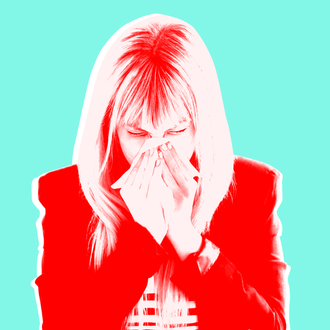
During a given day at the office, some people are their normal work-selves, typing away productively (well, arguably), while other people are home sick. Then there’s the third, murky category researchers called “presenteeism” — coming to work even though you’re sick and therefore not likely to be particularly productive. Researchers are curious about which pressures lead people to do this, since there are obvious ramifications both for public health (especially during periods like flu season) and for firms getting the most out of their workers.
To better understand presenteeism, doctors Mariella Miraglia of the University of East Anglia and Gary Johns of Concordia University just published a paper in the Journal of Occupational Health Psychology (that’s a link to a press release since there isn’t yet a working link to the paper itself up). The duo conducted a meta-analysis of past studies about presenteeism constituting a total sample of 175,965, and then applied various bits of statistical trickery to try to figure out what’s going on. They discovered that the variables correlated with presenteeism “included general ill health, constraints on absenteeism (e.g., strict absence policies, job insecurity), elevated job demands and felt stress, lack of job and personal resources (e.g., low support and low optimism), negative relational experiences (e.g., perceived discrimination), and positive attitudes (satisfaction, engagement, commitment)” [emphasis mine].
That last one is interesting, since it’s different from and more positive than all of the others, and it suggests two very different types of people are likely to drag themselves into work despite being under the weather: people who feel vulnerable as a result of financial stress, chronic illness, or other factors, and those who actually like and are really engaged by their job, making it hard for them to stay away. The former group probably would stay home if they felt like they could; you couldn’t drag the latter away from the office if you tried. There could be some overlap here, of course — you can have a positive attitude toward your job but also experience “elevated job demands and felt stress.” But a key, obvious takeaway from all this is that if you want workers to do the right thing and stay home when they’re sick, it would be best to downplay the possibility that they’ll be somehow punished for doing so.




